Serving 245 students in grades 9-12, Desert Hills High School ranks in the bottom 50% of all schools in Arizona for overall test scores (math proficiency is bottom 50%, and reading proficiency is bottom 50%).
The percentage of students achieving proficiency in math is 20-29% (which is lower than the Arizona state average of 35%). The percentage of students achieving proficiency in reading/language arts is 20-29% (which is lower than the Arizona state average of 40%).
Minority enrollment is 66% of the student body (majority Hispanic), which is equal to the Arizona state average of 66% (majority Hispanic).
Quick Stats (2025)
- School Type: Alternative school / Charter School
- Grades: 9-12
- Enrollment: 245 students
- Minority Enrollment: 66%
- Graduation Rate: 30-34% (Btm 50% in AZ)
- Overall Testing Rank: Bottom 50%
- Math Proficiency: 20-29% (Btm 50%)
- Reading Proficiency: 20-29% (Btm 50%)
- Science Proficiency: ≤10% (Btm 50%)
- Source: National Center for Education Statistics (NCES), AZ Dept. of Education
Top Rankings
Desert Hills High School ranks among the top 20% of public schools in Arizona for:
Category
Attribute
Diversity
School Overview
Desert Hills High School's student population of 245 students has stayed relatively flat over five school years.
School Type
Grades Offered
Grades 9-12
Total Students
245 students
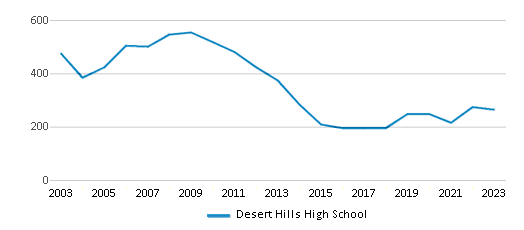
Gender %
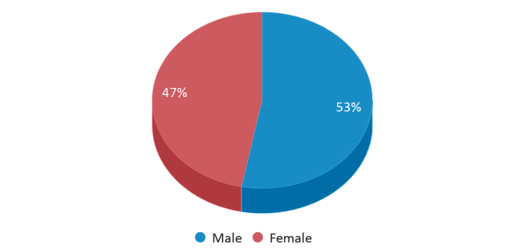
Total Classroom Teachers
n/a
Students by Grade
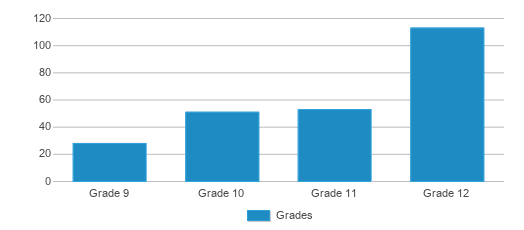
School Rankings
Desert Hills High School ranks within the bottom 50% of all 1,956 schools in Arizona (based off of combined math and reading proficiency testing data).
The diversity score of Desert Hills High School is 0.73, which is more than the diversity score at state average of 0.66. The school's diversity has stayed relatively flat over five school years.
Overall Testing Rank
#1262 out of 1956 schools
(Bottom 50%)
(Bottom 50%)
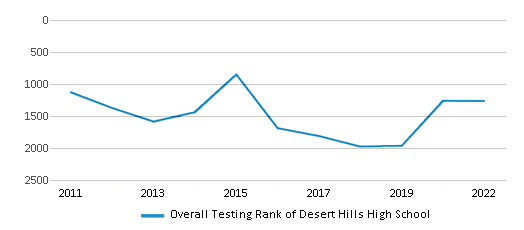
Math Test Scores (% Proficient)
20-29%
35%
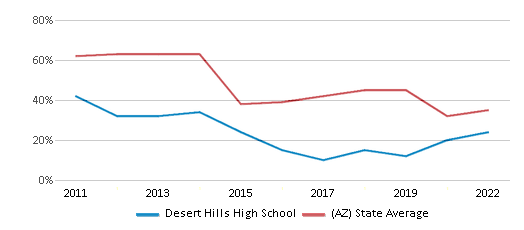
Reading/Language Arts Test Scores (% Proficient)
20-29%
40%
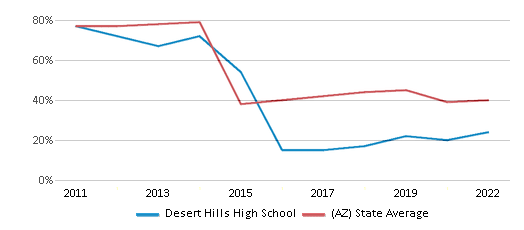
Science Test Scores (% Proficient)
≤10%
24%
Student : Teacher Ratio
n/a
17:1
American Indian
20%
5%
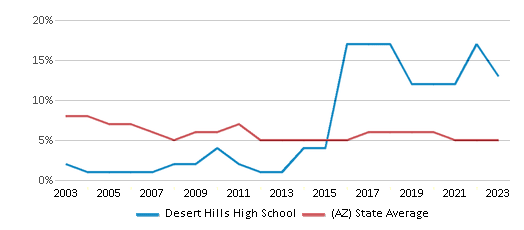
Asian
n/a
3%
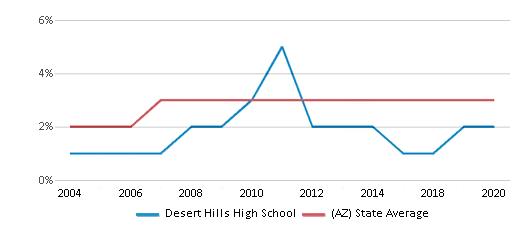
Hispanic
34%
48%
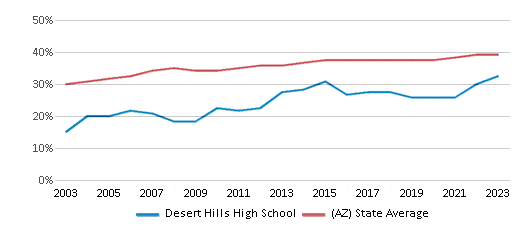
Black
7%
6%
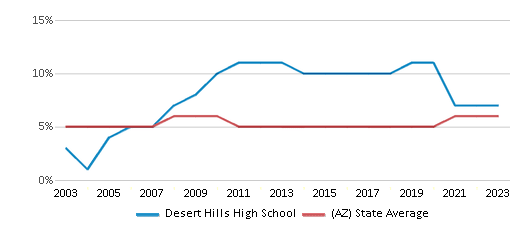
White
34%
34%
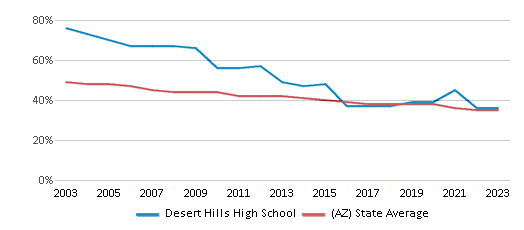
Hawaiian
1%
n/a
Two or more races
4%
4%
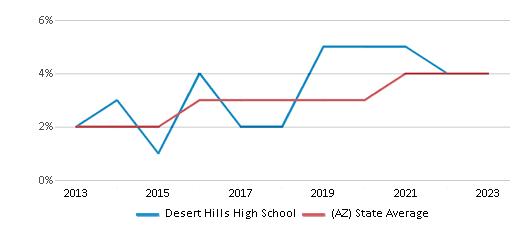
All Ethnic Groups
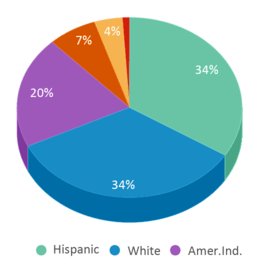
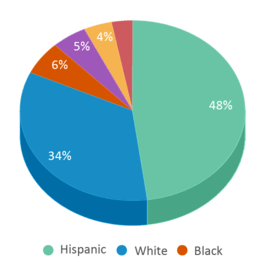
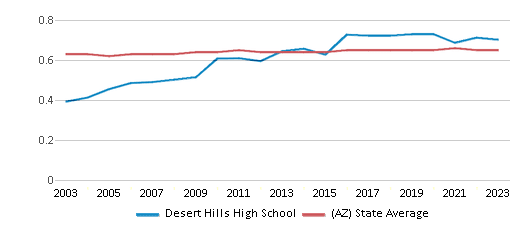
Graduation Rate
30-34%
77%
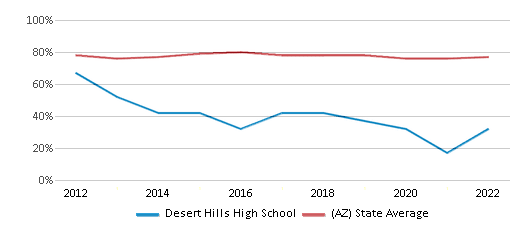
Eligible for Free Lunch
36%
40%
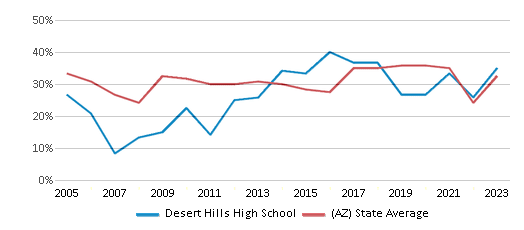
Eligible for Reduced Lunch
3%
10%
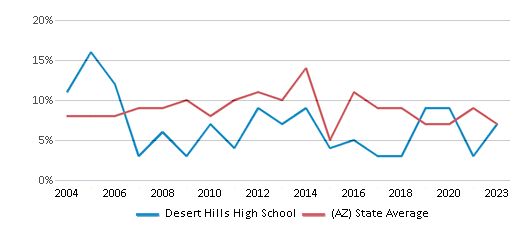
School Statewide Testing
School District Name
Source: National Center for Education Statistics (NCES), AZ Dept. of Education
Profile last updated: 02/09/2025
Frequently Asked Questions
What is Desert Hills High School's ranking?
Desert Hills High School is ranked #1262 out of 1,956 schools, which ranks it among the bottom 50% of public schools in Arizona.
What percent of students have achieved state testing proficiency in math and reading?
20-29% of students have achieved math proficiency (compared to the 35% AZ state average), while 20-29% of students have achieved reading proficiency (compared to the 40% AZ state average).
What is the graduation rate of Desert Hills High School?
The graduation rate of Desert Hills High School is 30-34%, which is lower than the Arizona state average of 77%.
How many students attend Desert Hills High School?
245 students attend Desert Hills High School.
What is the racial composition of the student body?
34% of Desert Hills High School students are Hispanic, 34% of students are White, 20% of students are American Indian, 7% of students are Black, 4% of students are Two or more races, and 1% of students are Hawaiian.
What grades does Desert Hills High School offer ?
Desert Hills High School offers enrollment in grades 9-12
What school district is Desert Hills High School part of?
Desert Hills High School is part of American Charter Schools Foundation D.B.A. Desert (79872) School District.
School Reviews
Review Desert Hills High School. Reviews should be a few sentences in length. Please include any comments on:
- Quality of academic programs, teachers, and facilities
- Availability of music, art, sports and other extracurricular activities
Recent Articles

How Scaffolding Could Change the Way Your Child Learns
This article explores the concept of instructional scaffolding, a teaching method that enhances learning by breaking down complex tasks into manageable parts. It highlights how scaffolding supports students in developing critical thinking skills and becoming more independent learners. The article discusses the benefits of scaffolding, including improved engagement and reduced anxiety, and provides strategies for its implementation across various educational levels.

The Impact of Coronavirus on Public Schools
This article discusses the widespread impact of COVID-19 on public schools, addressing issues such as school closures, remote learning challenges, effects on standardized testing, and concerns about student progress. It also provides tips for parents suddenly faced with homeschooling responsibilities.

February 05, 2025
Understanding the U.S. Department of Education: Structure, Impact, and EvolutionWe explore how the Department of Education shapes American education, from its cabinet-level leadership to its impact on millions of students, written for general audiences seeking clarity on this vital institution.





